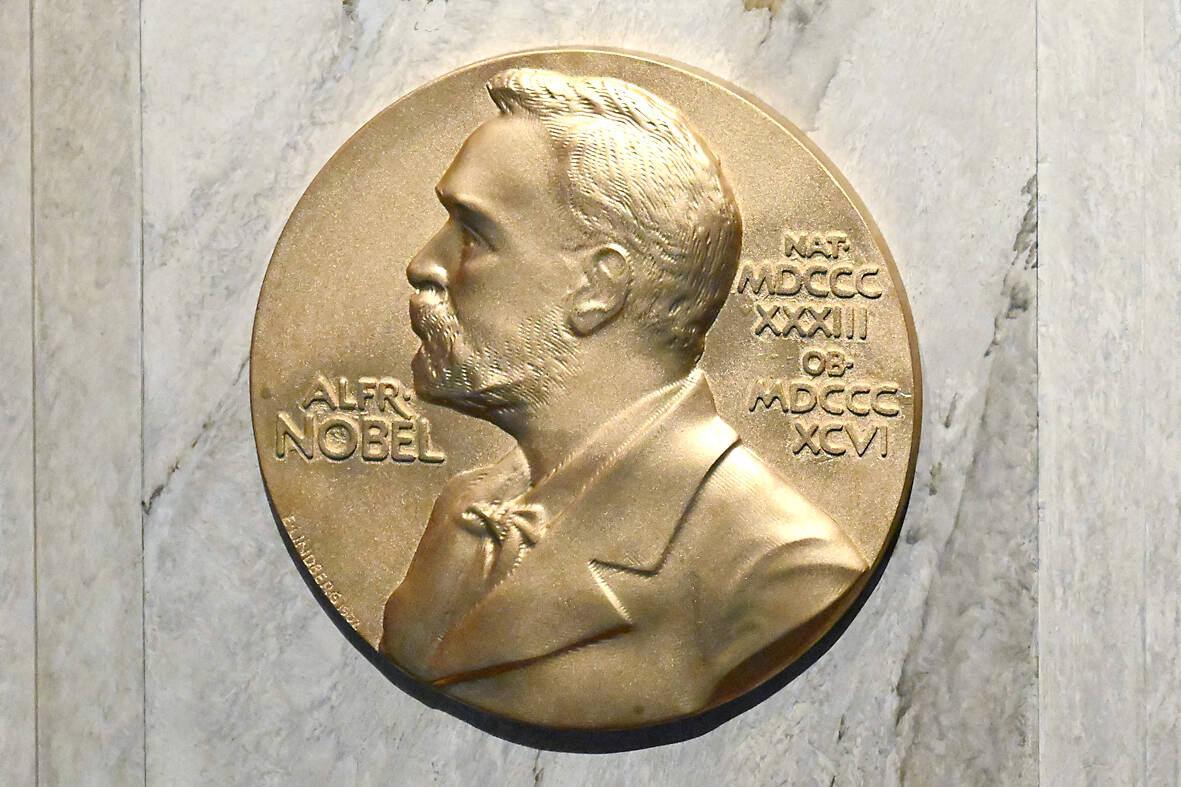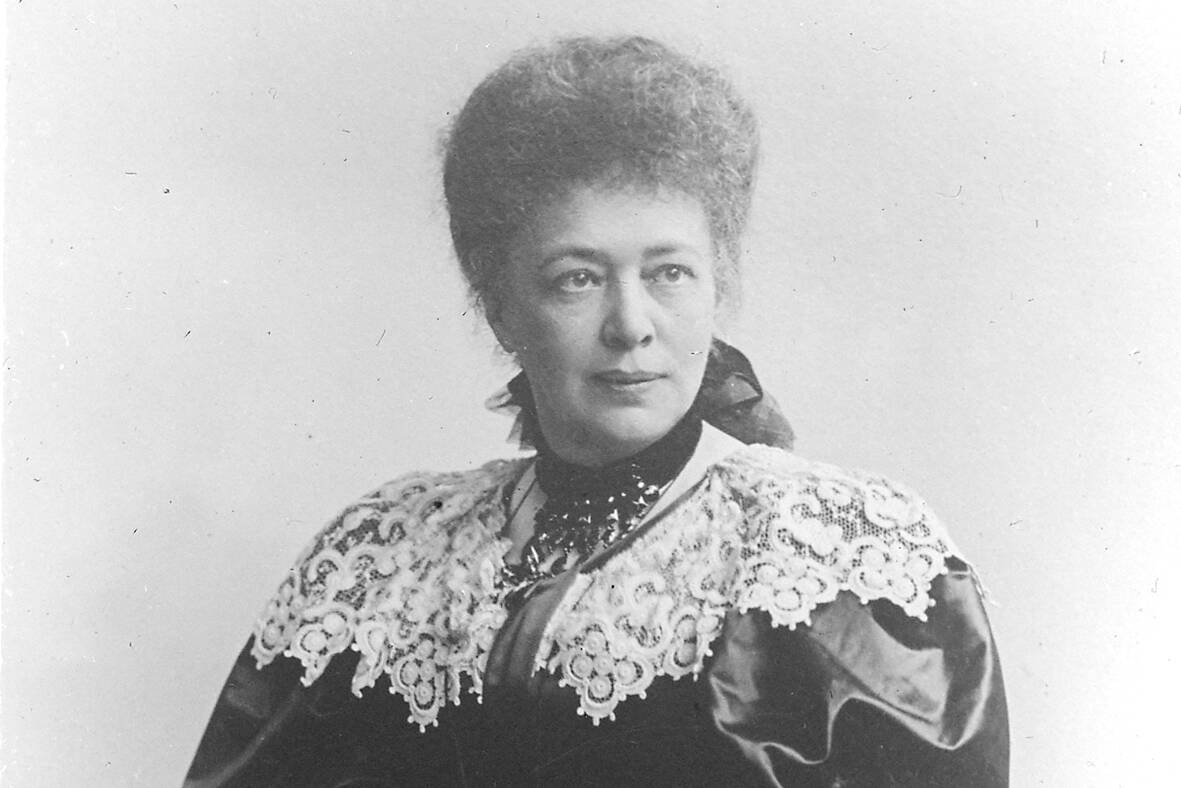Since 1901, Nobel prizes have been awarded to men, women and organizations for work that has led to great advances for mankind, in line with the wishes of inventor Alfred Nobel.
The winners of this year’s prizes will be announced daily from Monday, October 2 through October 9. Here are five things to know about the prizes and their creator.
IN ABSENTIA

Photo: AFP
Since 1901, six Nobel peace laureates have been prevented from attending the prize ceremony in Oslo. In 1936, German journalist and pacifist Carl Von Ossietzky was detained in a Nazi concentration camp.
In 1975, Soviet leaders refused to allow Russian dissident Andrei Sakharov to travel to Oslo to pick up his prize. He was represented by his wife Yelena Bonner.
In 1983, Polish union leader Lech Walesa declined the invitation to come to Oslo for fear he would not be allowed back into Poland.

Photo: AFP
In 1991, Myanmar opposition leader Aung San Suu Kyi was under house arrest when she won the prize. Given permission by the junta to travel, she also declined for a fear of not being able to return to her country.
In 2010, Chinese dissident Liu Xiaobo (劉曉波) was in prison. His chair remained empty, where the prize was placed.
Last year, Belarusian human rights campaigner Ales Bialiatski was in prison. He was represented by his wife Natalia Pinchuk.
POSTHUMOUS AWARDS
Since 1974, the statutes of the Nobel Foundation stipulate that the prize may not be given posthumously. But a person may be awarded if she or he dies between the time of the announcement in October and the formal prize ceremony in December.
Before the change, only two people had won a Nobel posthumously.
One was Dag Hammarskjold, the Swedish secretary general of the UN who died in a plane crash in 1961 but was awarded the Nobel Peace Prize later the same year.
And in 1931, the Nobel Literature Prize was awarded posthumously to another Swede, Erik Axel Karlfeldt.
In 2011, the Medicine Prize committee selected Ralph Steinman of Canada, unaware that he had passed away just three days before the prize announcement.
Nevertheless, the foundation decided to give him the award.
FEW FEMALE LAUREATES
While female representation among winners has been steadily increasing in the last decades compared to the early years, the 60 women Nobel laureates still account for around just six percent of winners. But things are getting better. Since 2000, 31 women have been awarded all prizes combined, almost three times as many as in the previous two decades. In 2009, five women received a Nobel prize, including the first female laureate in economics, American Elinor Ostrom — a record yet to be equaled. Economics has had the fewest women laureates at 2.2 percent, lower than the science prizes combined, which have seen 3.7 percent women laureates.
While slightly more evenly distributed, literature is still largely a male affair with 14.2 percent women among laureates, with the peace prize faring slightly better at 16 percent. The Nobel is an institution “for men,” 2022 literature laureate Annie Ernaux of France said. Nevertheless, the first person to win the Nobel prize twice was Marie Curie, in 1903 in physics and in 1911 in chemistry.
MISSING MATHEMATICS
There has long been debate over why no prize was created for mathematics.
There were longstanding rumors that it was in part because Alfred Nobel’s lover had an affair with mathematician Gosta Mittag-Leffler — but in the 1980s, researchers were able to put that theory to rest.
So why is there no prize? There are two likely explanations.
In 1895, when Nobel wrote his will, a maths prize already existed in Sweden and he saw no need for a second one.
And at the beginning of the 20th century, the applied sciences were in public and scientific favor. The contribution of mathematics to humanity was not as obvious as it is today.
LAVISH PRIZE CEREMONIES
The prizes are announced in early October, but the award ceremonies take place in Oslo and Stockholm every year on December 10, the anniversary of the 1896 death of prize creator and inventor Alfred Nobel.
In Stockholm — where the laureates for medicine, physics, chemistry, literature and economics are honored — the prize ceremony is followed by a glitzy banquet at City Hall for around 1,300 guests, including King Carl XVI Gustaf and Queen Silvia, the diplomatic corps, academics and business leaders.
Meanwhile, in Oslo, around 1,000 guests, including King Harald and Queen Sonja, diplomats and celebrities, attend the prize ceremony at City Hall followed by a smaller banquet at the Grand Hotel.
Russia’s ambassador has been barred from the Stockholm ceremony since last year due to the war in Ukraine. Norway’s Nobel Institute has meanwhile maintained its policy of inviting all ambassadors.

As Donald Trump’s executive order in March led to the shuttering of Voice of America (VOA) — the global broadcaster whose roots date back to the fight against Nazi propaganda — he quickly attracted support from figures not used to aligning themselves with any US administration. Trump had ordered the US Agency for Global Media, the federal agency that funds VOA and other groups promoting independent journalism overseas, to be “eliminated to the maximum extent consistent with applicable law.” The decision suddenly halted programming in 49 languages to more than 425 million people. In Moscow, Margarita Simonyan, the hardline editor-in-chief of the

Six weeks before I embarked on a research mission in Kyoto, I was sitting alone at a bar counter in Melbourne. Next to me, a woman was bragging loudly to a friend: She, too, was heading to Kyoto, I quickly discerned. Except her trip was in four months. And she’d just pulled an all-nighter booking restaurant reservations. As I snooped on the conversation, I broke out in a sweat, panicking because I’d yet to secure a single table. Then I remembered: Eating well in Japan is absolutely not something to lose sleep over. It’s true that the best-known institutions book up faster

The latest Formosa poll released at the end of last month shows confidence in President William Lai (賴清德) plunged 8.1 percent, while satisfaction with the Lai administration fared worse with a drop of 8.5 percent. Those lacking confidence in Lai jumped by 6 percent and dissatisfaction in his administration spiked up 6.7 percent. Confidence in Lai is still strong at 48.6 percent, compared to 43 percent lacking confidence — but this is his worst result overall since he took office. For the first time, dissatisfaction with his administration surpassed satisfaction, 47.3 to 47.1 percent. Though statistically a tie, for most

Though the total area of Penghu isn’t that large, exploring all of it — including its numerous outlying islands — could easily take a couple of weeks. The most remote township accessible by road from Magong City (馬公市) is Siyu (西嶼鄉), and this place alone deserves at least two days to fully appreciate. Whether it’s beaches, architecture, museums, snacks, sunrises or sunsets that attract you, Siyu has something for everyone. Though only 5km from Magong by sea, no ferry service currently exists and it must be reached by a long circuitous route around the main island of Penghu, with the